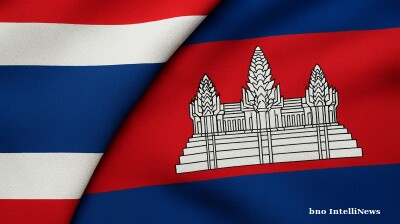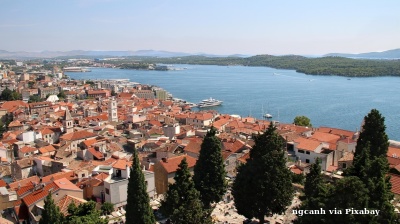Protests by anti-lockdown activists and anti-vaxxers took place in cities across Southeast Europe on March 20, as restrictions were tightened in response to the latest wave of the pandemic.
Thousands of people in total gathered in several Croatian cites, as well as Belgrade, Bucharest and Podgorica.
In Croatia, people went out to protest in five towns on March 20 against the restrictions with main demand being to be allowed to stop wearing face masks, N1 reported. Restrictions in Croatia are currently relatively light compared to some other countries in the region due to the more favourable epidemiological situation.
The protests, organised by the Rights and Freedoms initiative, were held in Zagreb, Dubrovnik, Split, Sibenik and Osijek, joining the World march for freedom, peace and democracy held in around 40 countries on the same day.
The protests aimed to highlight the role of people in decision-making, encouraging citizens to act and create a medium for educating citizens about their constitutionally guaranteed rights and freedoms.
Protesters claim the restrictions imposed by the authorities to contain the spread of coronavirus were authoritarian and did more harm than good.
Two separate protests — one organised by catering company owners and employees worried about their livelihoods, the other by anti-vaxxers — were held in the Serbian capital Belgrade, later joining up to voice their opposition to the government’s handling of the pandemic, as reported by local media.
Footage from the protests show large groups of people gathered in central Belgrade, many of them without masks. While some of the banners concerned the pandemic, others railed against Kosovo’s independence from Serbia, migration and the Belgrade Waterfront development; some of the speakers insulted the LGBTQ community and criticised mining company Rio Tinto’s Jadar lithium project in Serbia, reported RFE/RL.
In neighbouring Romania, newswires reported that over 1,000 anti-vaccination protesters turned out in Bucharest, which has also seen a sharp upturn in COVID-19 cases.
In Podgorica, around 100 people gathered to protest against the restrictions, which the authorities have been tightening constantly as the country is struggling to deal with the spread of coronavirus and its health system has nearly reached its full capacity to take care of patients.
The protesters claimed that the latest restrictions would harm the economy instead of improving the health situation.
Meanwhile, dozens of Montenegrins went out in their cars in several towns on March 20 to protest but their demands were unclear and apparently not related to the coronavirus situation.
“Our sky, our land, our language, our people. Stop chasing free people,” the organisers of the protest – a group of citizens who have not associated themselves with political parties – said in the call for protest, RTCG reported.
This followed a bus protest organised by local transport companies in Podgorica.
A similar protest involving around 200 buses from transport companies across Kosovo took place in Pristina on March 19. Bus company owners say they need government support to avoid bankruptcy.
News
.jpg)
Brazil and US to start urgent tariff negotiations after Trump-Lula meeting
Brazilian President Luiz Inácio Lula da Silva and US President Donald Trump have agreed to start immediate negotiations on tariffs and sanctions imposed by Washington, following a meeting in Malaysia that sought to ease trade tensions.

Cambodia and Thailand agree peace deal
Thailand and Cambodia have agreed a peace deal to mark the end of a conflict earlier in the year as Cambodian Prime Minister Hun Manet and Thai Prime Minister Anutin Charnvirakul attended a signing ceremony overseen by US President Donald Trump.

Trump would like to meet North Korea’s Kim Jong Un during Asia trip
The prospect of renewed diplomacy between Washington and Pyongyang has lingered since Kim’s remarks last month suggesting a willingness to speak to the outside world.

Bill Gates makes surprise Indian TV debut
In a move set to spark both intrigue and curiosity, Microsoft co-founder and philanthropist Bill Gates has made a cameo appearance on Indian television, entering the iconic drama series Kyunki Saas Bhi Kabhi Bahu Thi 2.




